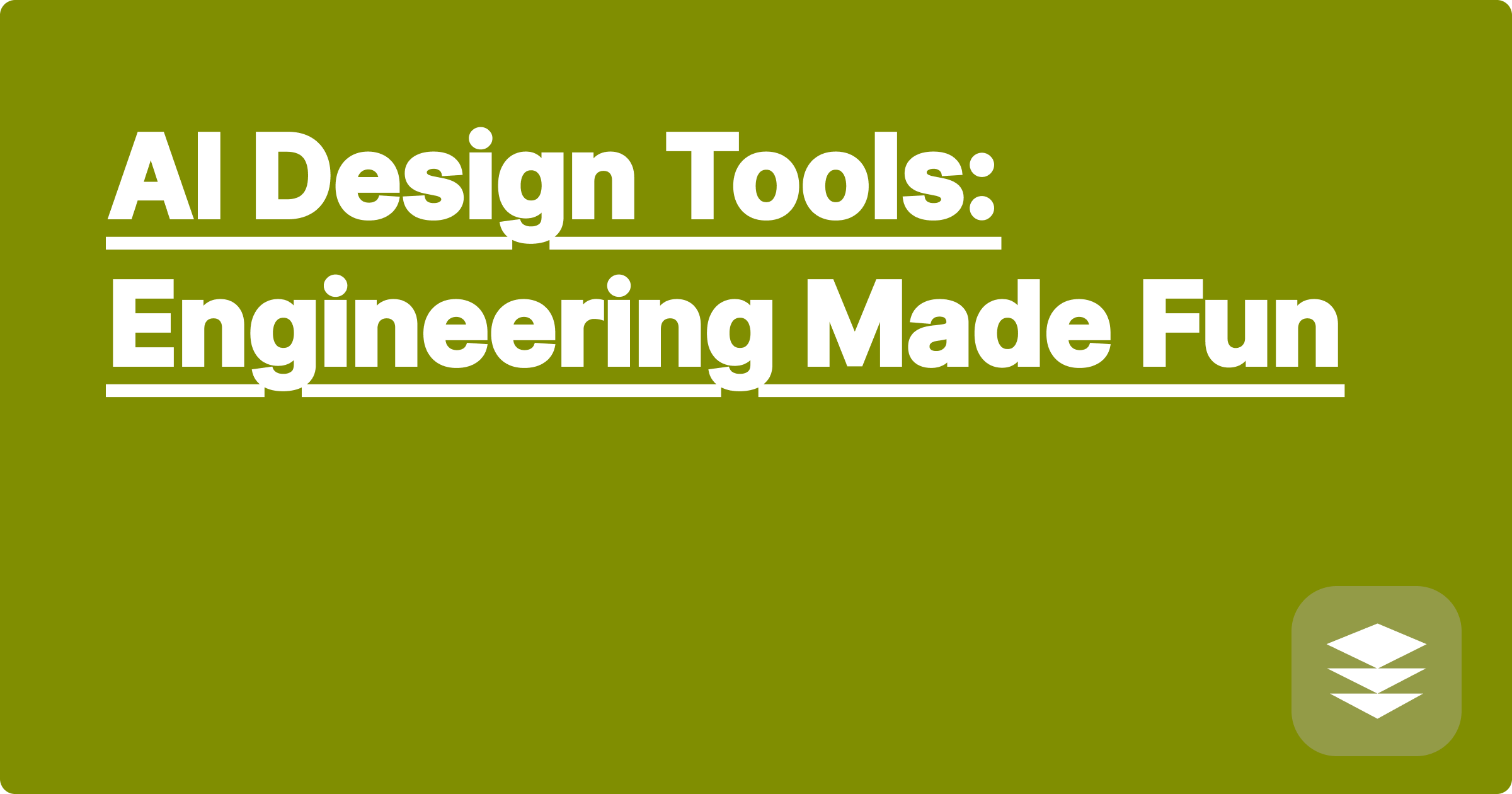
The world of STEM is exciting, challenging, and constantly evolving. Keeping up with the latest advancements, managing complex projects, and maintaining a healthy work-life balance can feel overwhelming. For many STEM students and researchers, time is a precious commodity, and the pressure to perform is immense. Imagine a world where you had a personalized AI assistant to help you navigate the complexities of your studies and research. That world is closer than you think, thanks to the rapid advancement of AI design tools. These tools are not just about making engineering "fun," but about empowering you to achieve more, learn faster, and unlock your full potential.
This isn't just about getting better grades or publishing more papers; it's about rediscovering the joy of learning and exploration. AI can handle tedious tasks, freeing you to focus on the creative and intellectually stimulating aspects of your work. This blog post explores how AI tools, especially some lesser-known gems, can revolutionize your STEM journey, turning challenges into opportunities and making the learning process more engaging and efficient. We'll delve into the concept of a Generalized Personal AI (GPAI) partner and explore how it can become your ultimate study buddy and research assistant. We'll also uncover some hidden AI tools that can give you a competitive edge in your field.
STEM fields are often characterized by vast amounts of information, complex calculations, and intricate simulations. Students and researchers face the daunting task of staying updated with the latest research, managing complex datasets, and efficiently conducting experiments. Traditional learning methods can be time-consuming and inefficient, leaving students feeling overwhelmed and struggling to keep up. Research can be equally challenging, requiring extensive literature reviews, meticulous data analysis, and precise simulations. These challenges can lead to burnout, decreased productivity, and ultimately, a diminished passion for the field. The need for personalized, efficient, and readily accessible learning and research tools is more critical than ever.
AI tools offer a powerful solution to these challenges. Imagine having a personalized AI assistant, a GPAI, that can help you organize your study schedule, summarize complex research papers, and even generate practice questions tailored to your learning style. GPAI can be conceptualized as an evolving AI system that learns your preferences, understands your goals, and adapts to your needs. This can be achieved through a combination of existing tools like advanced language models (e.g., ChatGPT, Claude), task management apps integrated with AI, and personalized learning platforms. For research, AI tools can automate literature reviews, analyze large datasets, and even assist in designing experiments. Tools like Wolfram Alpha can handle complex calculations and provide step-by-step solutions, while specialized AI platforms can analyze biological data, simulate physical phenomena, and even predict chemical reactions.
Building your GPAI starts with identifying your specific needs and goals. Are you struggling with time management? Do you need help with data analysis? Once you've identified your pain points, you can start exploring different AI tools that address those needs. For example, if you need help with scheduling and task management, you can integrate AI-powered scheduling assistants into your calendar. If you're struggling with research, start by using AI-powered literature review tools to quickly identify relevant papers and extract key insights. Next, explore specialized AI tools for your specific STEM field. For example, if you're a biology student, look into AI-powered tools for gene sequencing analysis or protein structure prediction. Continuously refine your GPAI by experimenting with different tools and integrations, finding what works best for you.
Consider a scenario where a chemical engineering student is struggling with designing a chemical reactor. Using a GPAI, they can input the desired reaction parameters and constraints, and the AI can suggest optimal reactor designs, simulate the reaction process, and even predict potential safety issues. Another example involves a physics student struggling to understand complex equations. They can use Wolfram Alpha to break down the equation step-by-step, visualize the concepts, and even generate practice problems. I personally used Wolfram Alpha to understand the intricacies of Maxwell's equations, visualizing the electromagnetic fields and gaining a deeper understanding of the concepts. This not only saved me hours of study time but also made the learning process much more engaging.
Integrating AI into your workflow requires a strategic approach. Start by identifying your biggest time sinks and areas where you struggle the most. Then, explore AI tools that can automate or assist with those tasks. Don't be afraid to experiment with different tools and find what works best for you. For example, I started by using ChatGPT to summarize research papers, saving me hours of reading time. I then integrated a task management app with AI to optimize my study schedule and prioritize tasks. This combination significantly improved my productivity and reduced my stress levels. Remember, AI is a tool, and its effectiveness depends on how you use it. Be proactive, experiment, and continuously refine your approach to maximize the benefits of AI in your STEM journey.
To conclude, AI design tools are transforming the landscape of STEM education and research. By embracing these tools, you can not only improve your academic performance but also rediscover the joy of learning and exploration. The key is to be proactive, experiment with different tools, and develop a personalized AI-powered workflow that aligns with your specific needs and goals. Start exploring the world of AI tools today, and unlock your full potential as a STEM student or researcher. Don't just survive your STEM journey; thrive in it with the power of AI.
AI for Labs: Speed Up Research
AI Homework Helper: STEM Made Easy
AI Design Tools: Engineering Made Fun
AI Solver: Conquer STEM Problems
AI Flashcards: Master STEM Concepts
AI for Data: Analyze STEM Data